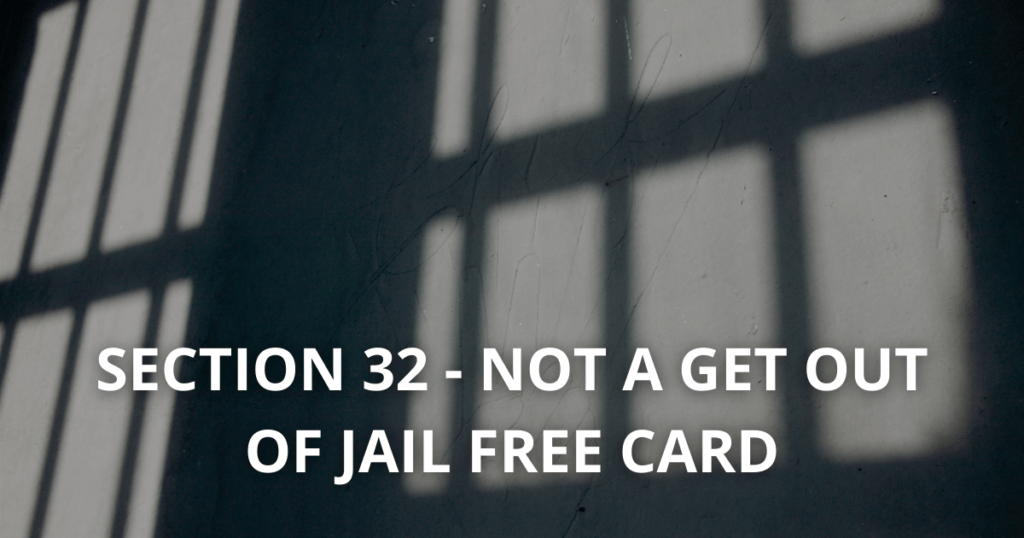Mental Health Order: Section 14 Application
Mental Health Order: Section 14 Application
Criminal Procedure
Jump To
If you suffered from a mental illness, mental condition or cognitive impairment at the time of committing an offence, you may be able to get a dismissal by way of a section 14 mental health order.
We can assist you with an application to dismiss the proceedings under Section 14 Application under the Mental Health and Cognitive Impairment Forensic Provisions Act 2020 (NSW).
This provision allows the court to dismiss a matter if the person suffered from a mental illness, condition or cognitive impairment at the time of committing the alleged offence. An order under section 14 means that your matter will divert from the criminal justice system and no conviction will go on record against you.
This application replaces ‘section 32 applications.’
FAQ About Section 14 Applications
Section 14 Mental Health Orders a Magistrate may make
(1) A Magistrate may make an order to dismiss a charge and discharge the defendant—
(a) into the care of a responsible person, unconditionally or subject to conditions, or
(b) on the condition that the defendant attend on a person or at a place specified by the Magistrate for assessment, treatment or the provision of support for the defendant’s mental health impairment or cognitive impairment, or
(c) unconditionally.
(2) An order to dismiss a charge against a defendant does not constitute a finding that the charge against the defendant is proven or otherwise.
To proceed with a successful application, one must establish a ‘mental health impairment’ that affects the way you think, feel, or manage your feelings.
You can also have a successful application by establishing a ‘cognitive disability’ which affects the way you think, communicate, understand, and remember things.
It is often important to raise the possibility of this application early in your court proceedings.
Under section 14 of the Act a Magistrate may make an order to dismiss a charge and discharge the defendant:
- into the care of a responsible person, unconditionally or subject to conditions, or
- on the condition that the defendant attend on a person or at a place specified by the Magistrate for assessment, treatment or the provision of support for the defendant’s mental health impairment or cognitive impairment, or
- unconditionally.
Mental health impairment’s definition is in section 4 of the Mental Health and Cognitive Impairment Forensic Provisions Act 2020 (NSW) (‘the Act’).
A person has a mental health impairment if:
- the person has a temporary or ongoing disturbance of thought, mood, volition, perception or memory, and
- the disturbance would be regarded as significant for clinical diagnostic purposes, and
- the disturbance impairs the emotional wellbeing, judgment or behaviour of the person.
A mental health impairment may arise from any of the following disorders but may also arise for other reasons:
- an anxiety disorder,
- an affective disorder, including clinical depression and bipolar disorder,
- a psychotic disorder,
- a substance induced mental disorder that is not temporary.
A person does not have a mental health impairment for the purposes of the Act if the person’s impairment is caused solely by:
- the temporary effect of ingesting a substance, or
- a substance use disorder.
Cognitive impairment is defined in section 5 of the Act.
A person has a cognitive impairment if:
- the person has an ongoing impairment in adaptive functioning, and
- the person has an ongoing impairment in comprehension, reason, judgment, learning or memory, and
- the impairments result from damage to or dysfunction, developmental delay or deterioration of the person’s brain or mind that may arise from a condition set out in subsection (2) or for other reasons.
A cognitive impairment may arise from any of the following conditions but may also arise for other reasons:
- intellectual disability,
- borderline intellectual functioning,
- dementia,
- an acquired brain injury,
- drug or alcohol related brain damage, including foetal alcohol spectrum disorder,
- autism spectrum disorder.
Section 7 of the Act defines a treatment plan as being a plan outlining programs, services or treatments or other support that may be required by a defendant to address the defendant’s apparent mental health impairment or cognitive impairment
In effect, the treatment plan (also known as a support plan) is often provided in a report tendered to the court from a mental health professional (‘professional’) such as a forensic psychologist or forensic psychiatrist who has assessed you. Within the report the professional outlines their proposed treatment plan.
Our solicitors work closely with a number of professionals and can assist you in being assessed and having the report written by them.
Your treatment plan may include, but is not limited to, the below:
- seeing your general practitioner and taking medication as prescribed by them;
- attending consultations with a psychologist or psychiatrist on a regular basis; and/or
- engaging in therapy, for example: cognitive behavioural therapy (‘CBT’) or dialectical behavioural therapy (‘DBT’).
The treatment plan will be in effect for 12 months.
Section 16 of the Act states that a person who fails to comply with a condition of an order under section 14 then the matter will be dealt with as if the person had not previously been discharged.
In effect, what this means is that a warrant can be issued for the person’s arrest and the Magistrate will most likely deal with the matter under the criminal laws as it is extremely rare for a person to be given a ‘second chance’ for not complying with their treatment plan.
Case Studies
Police charged our client, Jack, with the common assault of his neighbour. This followed an incident where the two passed each other while entering/exiting an elevator in their apartment complex.
Police charged Annette with 3 counts of assault occasioning AB, 3 assault police officer, 3 resist officer in execution of duty.
Client found with MDMA. We assisted MR in gathering a number of character references as well as a report from a psychiatrist outlining his mental health. The court considered these documents and made an order to dismiss the case under section 32 and MR was discharged.
Read the full Charges dismissed by way of mental health provision case study here.
How we Can Help
If you or a loved one believes that you require assistance with a Section 14 application, please contact O’Brien Criminal and Civil Solicitors as our criminal practice is experienced in these types of matters.
Don’t hesitate, call O’Brien Criminal & Civil Solicitors today at (02) 9261 4281 and let our experienced team assist you with your civil case.
From start to finish, we’ll be by your side, providing the expert guidance and support you need to achieve the best possible outcome. Don’t navigate the legal system alone, contact us now and take the first step towards resolving your civil case.



